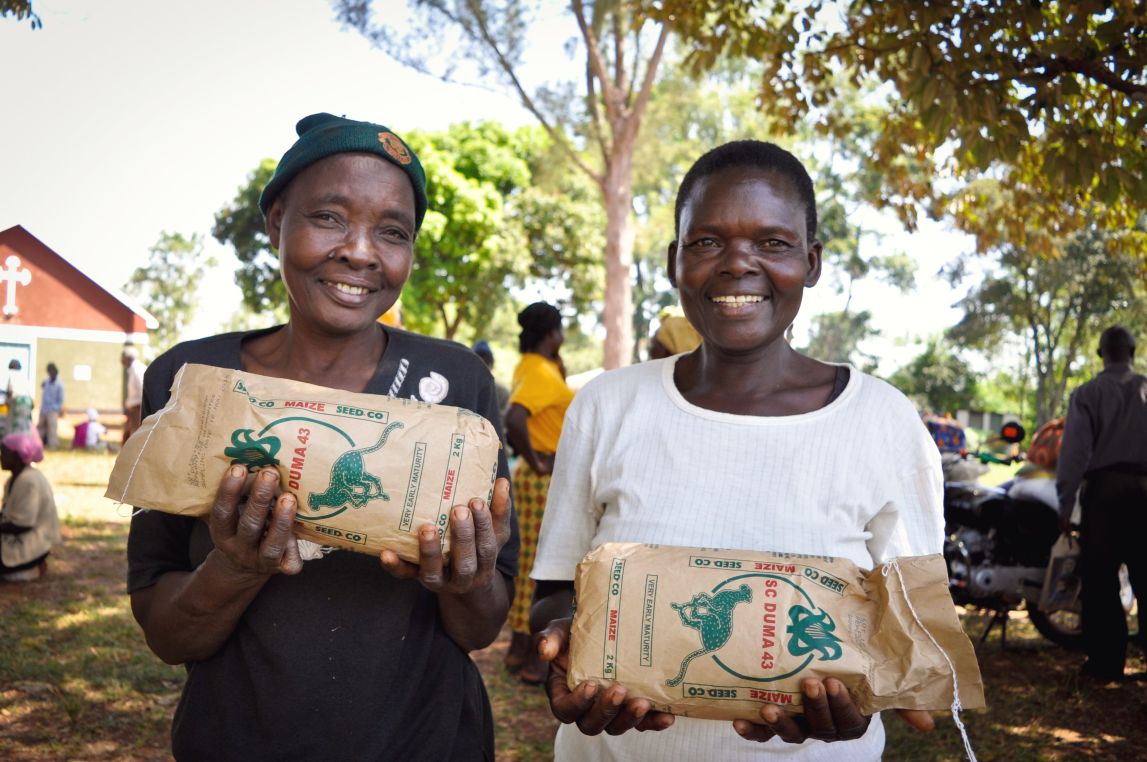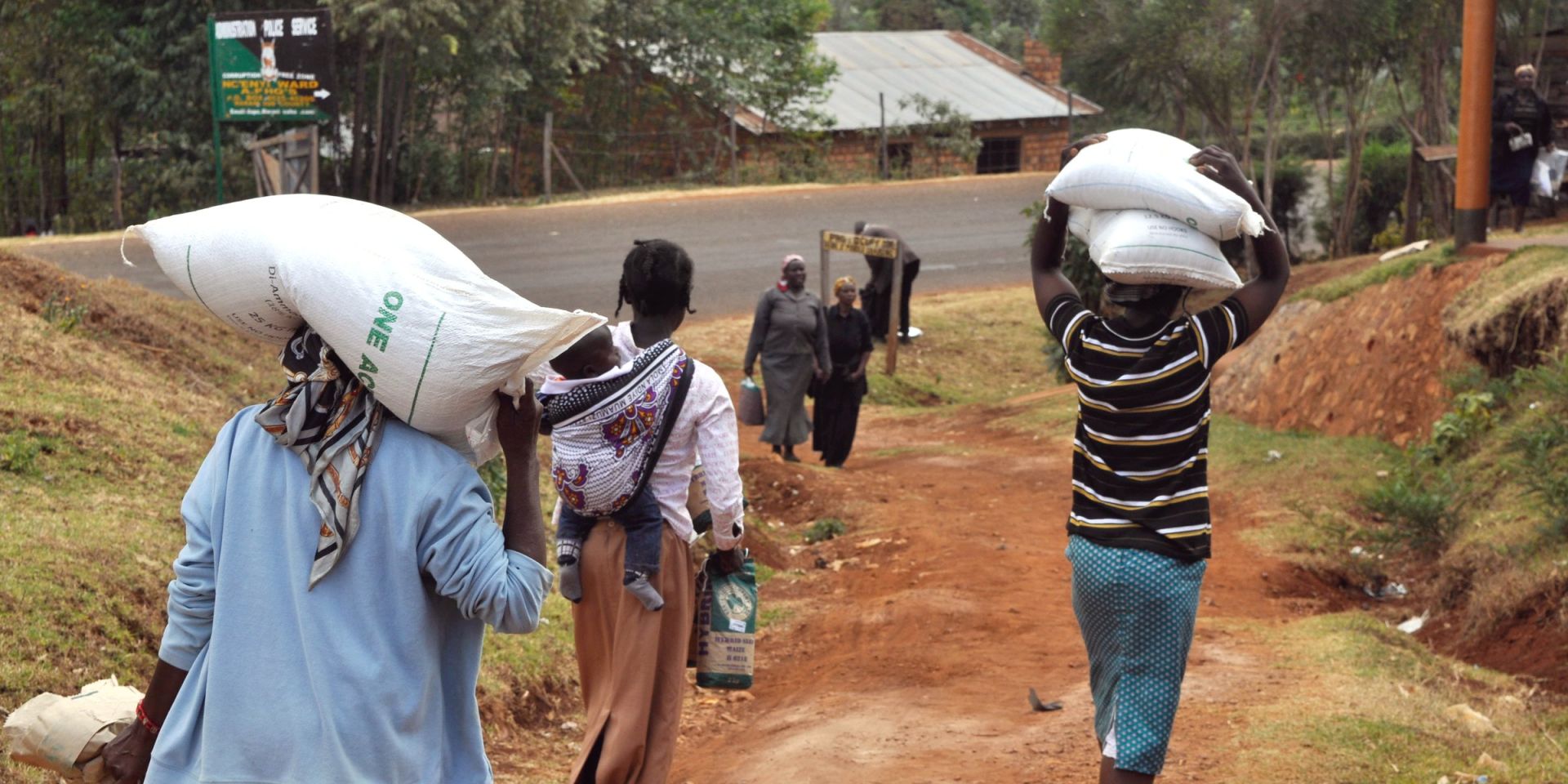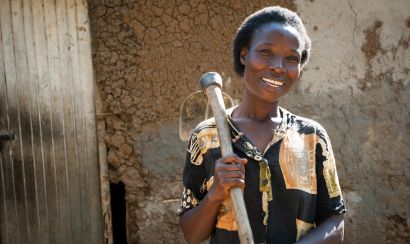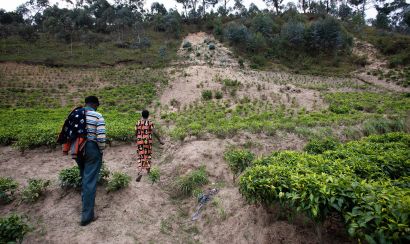Asset-Based Financing and Flexible Repayment Schedules
The Gap in Today's Microfinance
Expanding access to finance isn’t enough. Clients need access to financial products that they will actually adopt. That’s why addressing customer needs, one of the pillars of the Center for Financial Inclusion 2020 Roadmap to Inclusion, is so critical for making finance more inclusive. For smallholder farmers in rural Africa, where inclusion rates are 19 percent compared to the urban rate of 34 percent, the financial services provided don’t come close to meeting the demand. Asset-based financing and loan products with flexible repayment schedules can help close this gap.
Among other financial services, smallholders desperately need access to financing for basic inputs—improved seed and fertilizer—that could dramatically increase their agriculture productivity. Properly designed, this financing could make an important contribution to growth and poverty reduction in Africa.
Unfortunately, microfinance products created for Africa’s poor do not necessarily meet such needs. Most microfinance institutions are concentrated in urban and peri-urban areas and primarily offer cash loan products on strict repayment schedules. These products meet the needs of the urban and suburban poor, most of whom receive small but frequent income from businesses or jobs. Smallholder farmers have different challenges.
Unlike urban clients, smallholder farmers receive the majority of their income all at once after harvesting. As small jobs come in, such as day labor on a neighbor’s farm or a local construction project, farmers can earn some extra income, but this is incremental and unpredictable. A cash loan product on a strict repayment schedule does not meet these financing needs.

Loans Designed for Smallholders
How should a loan product be structured to meet the needs of smallholder farmers? At One Acre Fund, we designed a product pairing asset-based financing and a flexible repayment schedule that is working for 180,000 smallholder farmers in Kenya, Rwanda, Burundi, and Tanzania.
Instead of cash, One Acre Fund lends the assets that farmers need for success. By buying through us, farmers are able to avoid the potential pitfalls associated with local sellers, such as poor quality or fraudulent inputs and high prices. Our organization sources materials from large suppliers, negotiates bulk fates, and imposes rigorous quality control standards.
There are other advantages to lending assets rather than cash, as well. Farmers are less intimidated by taking a loan when they are receiving a comprehensive package of inputs that is proven to be profitable. Because it shares features with Islamic finance models such as murabaha, asset-based lending can provide a workable alternative for Muslim clients.
For the lender, the asset-based lending model lowers risk and reduces the need to assess credit worthiness. The lender knows what investment the client has made and knows that the investment can be used in a profitable business model. It also allows for specifically tailored training. With all of their clients using the same inputs, microfinance institutions can provide precise information on how to use them to maximize profits. Our field officers provide highly-specific training at weekly meetings to ensure that clients get the most out of their investments. Field officers also use these meetings to encourage continuous repayment and offer modest incentives for meeting targets early.
Instead of enforcing a strict weekly repayment structure, our flexible repayment structure has just two deadlines for clients. First, farmers must meet a “prepayment” requirement before they receive any of our services (roughly 10 percent of their total loan size). The second repayment deadline is the final one, due after the harvest. After paying that first 10 percent, farmers are free to make repayment on their own schedule, at any time throughout the season.
This type of flexible repayment schedule works because it meets the needs of smallholder farmers, boosts demand for credit and increases the amount invested in farm inputs. And it has been shown that offering a flexible repayment schedule generally does not increase delinquency or default among microfinance clients.
At One Acre Fund, the flexible repayment schedule has been very successful, supporting a growing number of clients as well as excellent repayment statistics over the past three years. Our overall repayment rate is over 98 percent.
This post originally appeared on the Center for Financial Inclusion blog.



